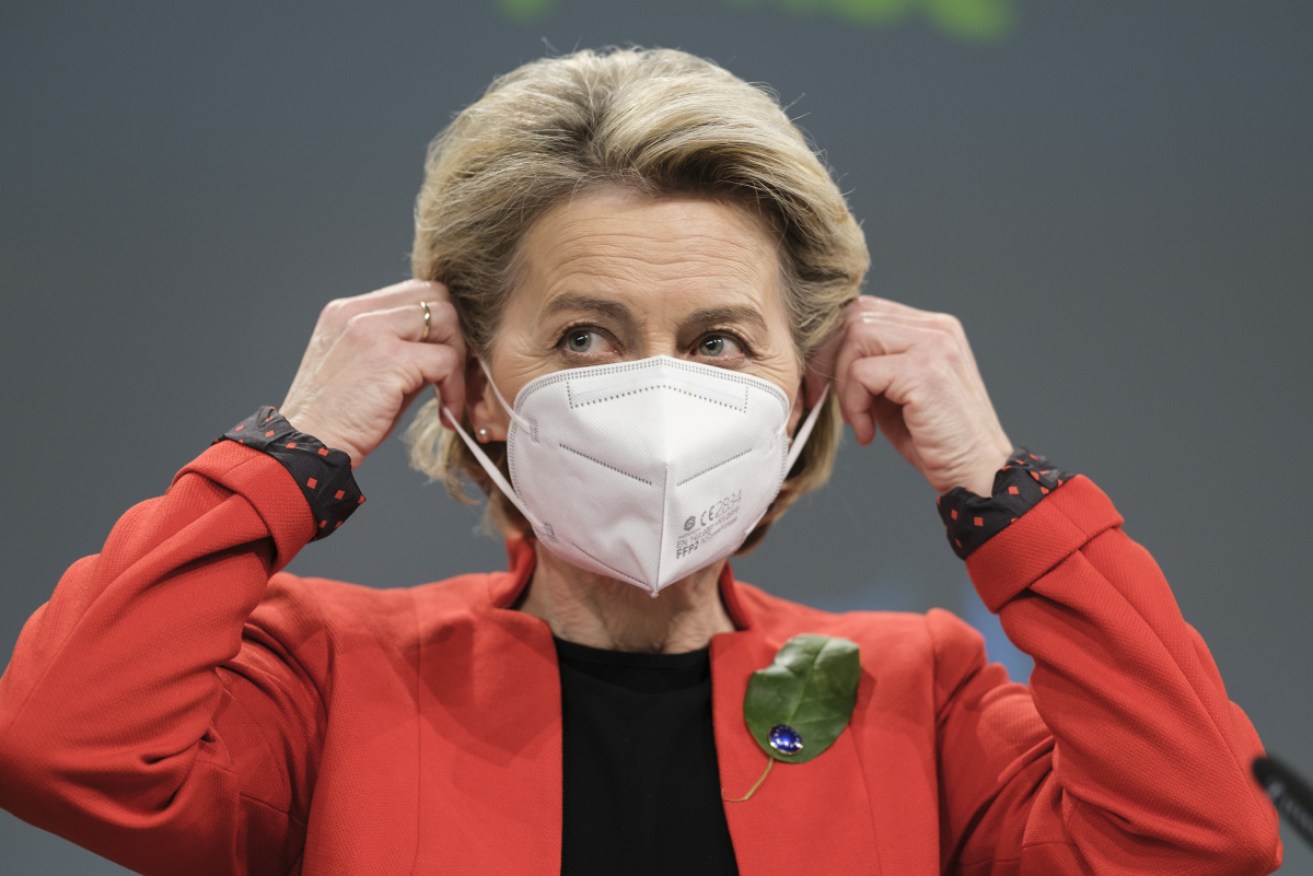‘Whatever tool we need’: EU’s vaccine threat amid supply fears


European Commission president Ursula von der Leyen says the EU will use "whatever tool we need" to ensure vaccine supplies. Photo: Getty
The EU is stepping up pressure on supplies of COVID vaccines, with European Commission boss Ursula von der Leyen also taking aim at drug maker AstraZeneca for “underproducing and underdelivering”.
Europe was “ready to use whatever tool we need” to get enough vaccines for its 450 million citizens, Ms von der Leyen, the president of the European Commission, said on Wednesday (local time).
“This about making sure Europe gets its fair share,” she said.
The step-up in vaccine pressure came as she also said the pandemic was “getting worse” in the European Union, with the “crest of a third wave forming in member states”.
“Open roads run in both directions and this is why we need to ensure that there is reciprocity and proportionality,” Ms von der Leyen said.
“I want to be clear on reciprocity. If the situation does not change, we will have to reflect on how to make exports to vaccine-producing countries dependent on their level of openness.”
Possible EU moves include potentially tightening rules for the export of COVID-19 vaccines further by allowing deliveries only to countries that also allow exports of the doses.
“We are exporting a lot to countries that are themselves producing vaccines and we think this is an invitation to be open, so we also see exports from them coming back to the European Union,” Ms von der Leyen said.
“The second point that is of importance for us, we will reflect on whether exports to countries who have higher vaccination rates than us are still proportionate.”
The move would not affect the United States, as the principle of reciprocity was guaranteed there, Ms von der Leyen said.
Tweet from @EU_Commission
Instead, the announcement could be considered a warning shot to Britain. The commission alleges its former member is exporting no vaccine doses while having received 10 million doses from the bloc.
“We are still waiting for doses to come from the UK, so this is an invitation to show us that there are also doses from the UK coming to the European Union so that we have reciprocity,” she said.
In response, British Health Secretary Matt Hancock said Britain “fully expects” vaccine contracts signed with drug producers to be fulfilled.
Mr Hancock said the AstraZeneca/Oxford vaccine was produced from research funded by the British government, and the government had helped set up the supply chain in Britain and the EU.
He said Britain “legally signed a contract” to deliver 100 million doses of the AstraZeneca/Oxford vaccine to British people. Echoing Ms von der Leyen’s previous comments, he said there should not be “restrictions on the export of vaccines by companies where they are fulfilling contractual responsibilities”.
Earlier in March, the British government denied reports it was preventing exports, stating it had “not blocked the export of a single COVID-19 vaccine”.
In total, the EU had authorised the export of 41 million doses to 33 countries since the beginning of February, Ms von der Leyen said, while member states were struggling to inoculate their own citizens.
The bloc should also consider whether to continue allowing exports to countries with higher vaccination rates than the EU.
“We want reliable deliveries of vaccines,” she said. “This is about making sure that Europe gets its fair share.”
The commission would present the proposal at a meeting of EU heads later in March, Ms von der Leyen said.
Wednesday’s announcement came amid delivery delays by pharmaceutical company AstraZeneca and a sluggish roll-out of vaccination campaigns across the European Union.
Ms Von der Leyen accused AstraZeneca of not living up to its promises. Of 180 million doses the company had promised, only 70 million would be delivered in the second quarter of 2021, she said.
While some politicians welcomed a stricter approach to exports, the EU executive’s suggestion also met criticism. The introduction of the initial export rules had already sparked international outrage, with some accusing the bloc of “vaccine nationalism”.
-with AAP








